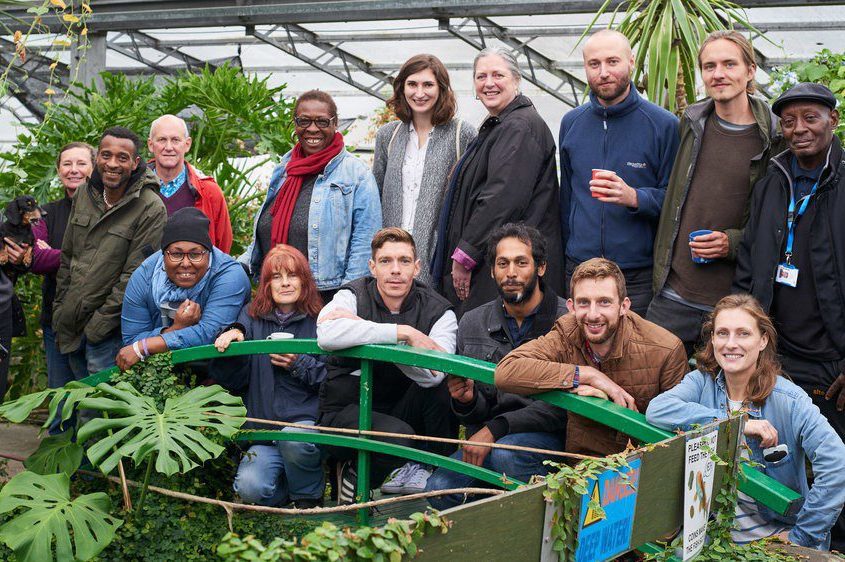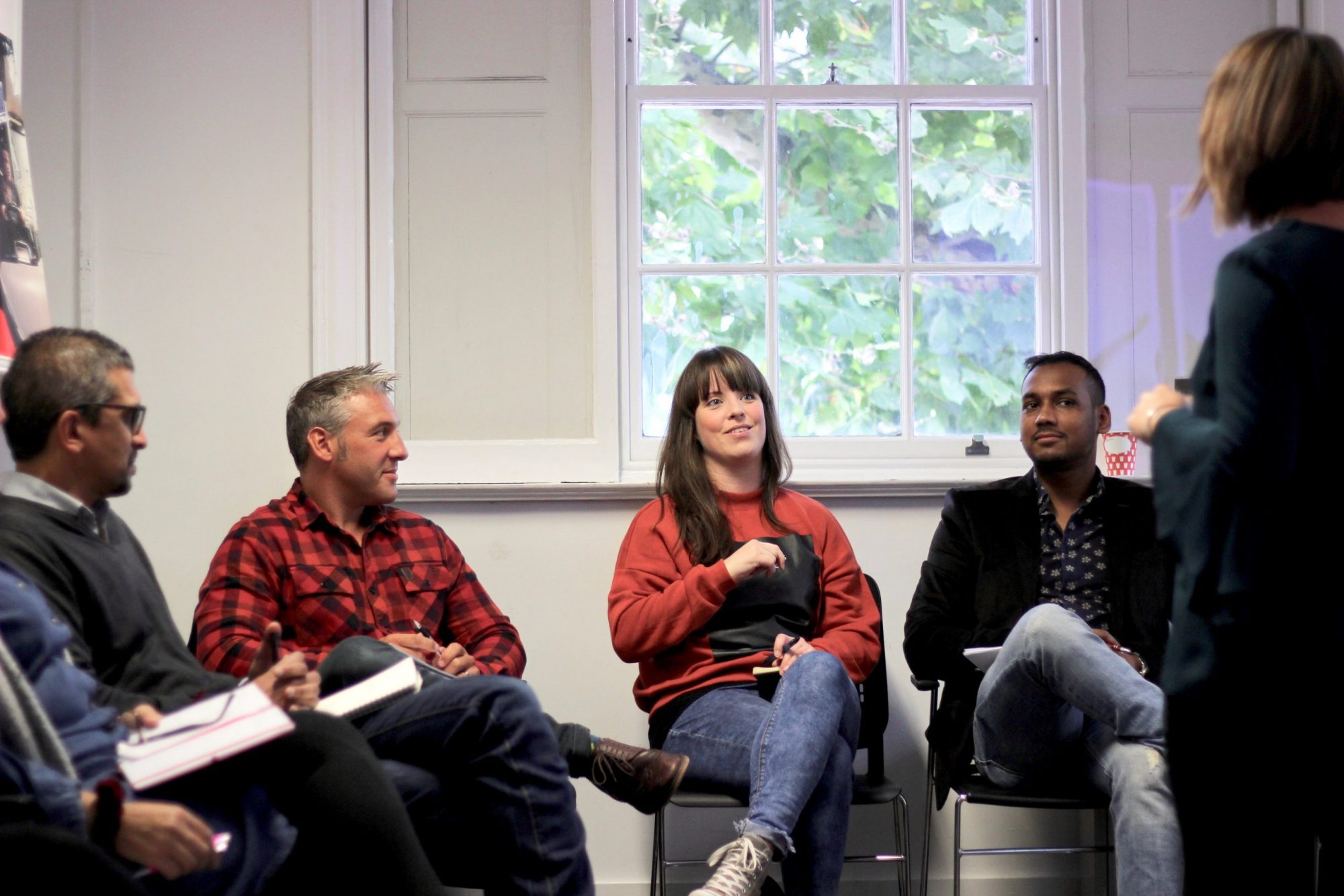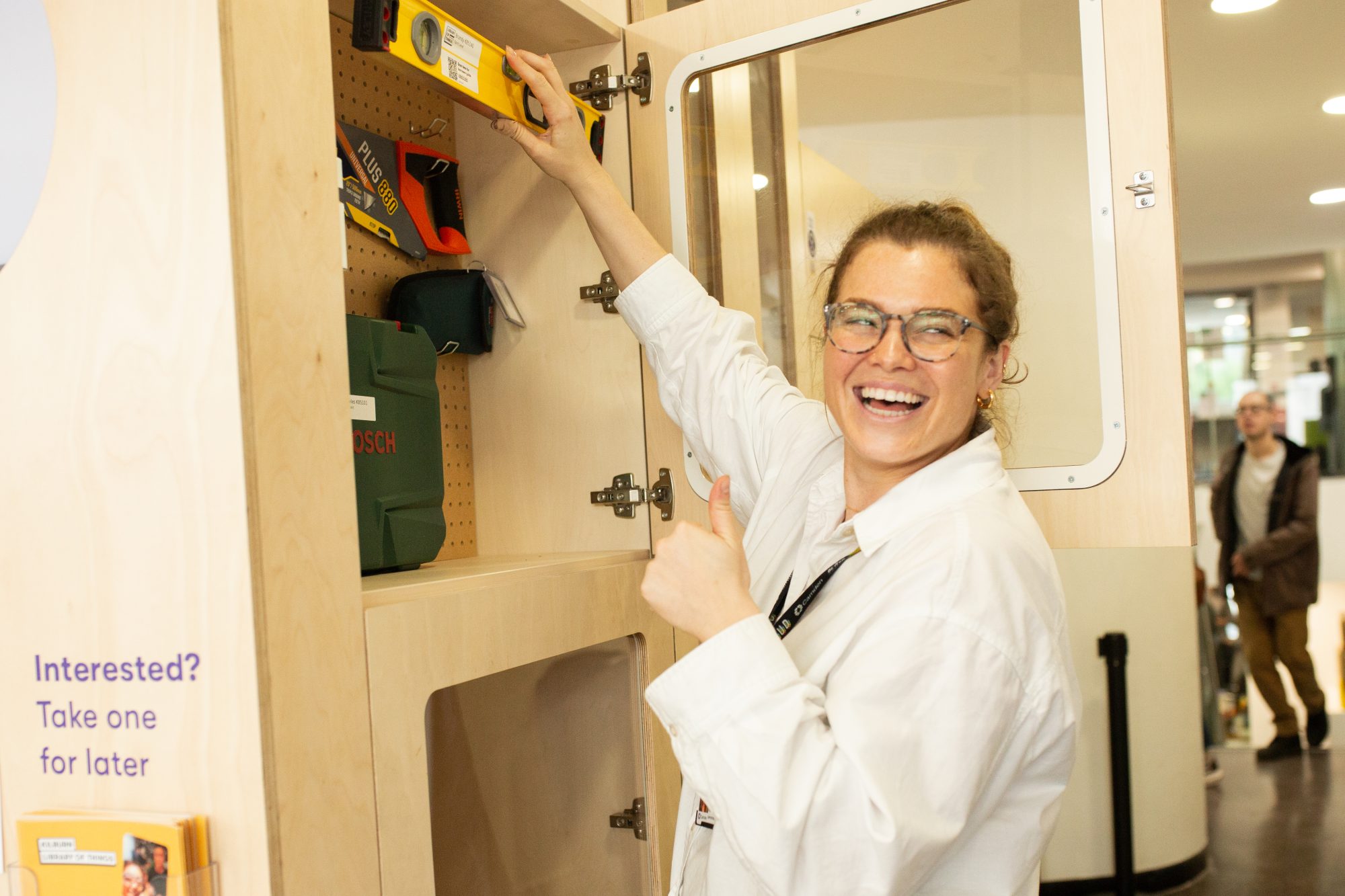History and overview of Wolves Lane
When Wolves Lane Horticultural Centre, a plant nursery ran by Haringey Council, shut its doors in April 2017, the local community were worried what the future would hold for the three-acre space. Fast forward to 2019, and local community growers have established an innovative food growing hub at the site.
Wolves Lane Horticultural Centre, with its resident terrapins, koi carp, and tropical plants, was well loved by locals, and described by many as a ‘mini-Eden’. Locals, however, had long been commenting on the state of disrepair the centre had found itself in, and there was little surprise when Haringey Council shut its doors in April 2017.
Unbeknown to many, though, Haringey Council had spent several years in the lead up to Wolves Lane’s closure exploring options for the future of the site. This had included asking OrganicLea, a community food project based in the Lea Valley in north-east London, to assess the viability of the site as a food growing space. OrganicLea formed a coalition with likeminded community organisations to develop the offer, and in the same month as closing its doors, Haringey Council handed over the stewardship of Wolves Lane to OrganicLea.
Later in 2017, Ubele joined the coalition. Ubele is an African Diaspora led intergenerational social enterprise, whose primary mission is to build more sustainable communities across the UK. In 2018, Ubele was the lead organisation in a successful grant application of £14,898 to Power to Change’s Bright Ideas fund to support the development of Wolves Lane as a community business. This helped to develop both a regular community market at the hub, and formalise a consortium structure. As of 2019, Wolves Lane is now run by a consortium of local organisations led by OrganicLea, Ubele, and veg box scheme Crop Drop.
Global context / what’s the issue?
- Food production: A global food chain is putting our natural environment under pressure. Agriculture is responsible for 75% of global deforestation, and is the largest producer of non-CO2 gas emissions.
- Renewable energy: 2018 saw capacity of renewable energy overtake that of fossil fuel in the UK for the first time. However, 2018 saw a 7% rise in the output of fossil fuels and output globally, the largest increase in seven years.
- Education: education on climate action is recognised as a vital tool in tackling climate change. It is believed that education can be used as a mechanism to develop a workforce with the skills and knowledge to power green innovations.
Environmental impact of Wolves Lane
- Education
Since its reincarnation, Wolves Lane has been leading the way in improving the local and wider environment. Its volunteering and training opportunities have provided education in growing local and sustainable produce, and how this can reduce carbon emissions. Such opportunities have multiple benefits for participants, with it being found that gardening has a positive impact on both mental and physical health.
Wolves Lane hopes to convert its ‘rainforest room’ to community use, so classes can be held there. They also place focus on teaching visitors about food miles, growing produce with limited space, and the importance of rainforests. This all helps visitors understand the importance of the natural environment, and how they can reduce their personal impact.
Growing community cohesion is evident, whether it be through bringing together multiple organisations under one roof who can collaborate and learn from one another, or simply through individuals speaking to and making friends with neighbours they may never have met. This strengthening of local networks is helping to develop a stronger public awareness of and engagement with the environment.



